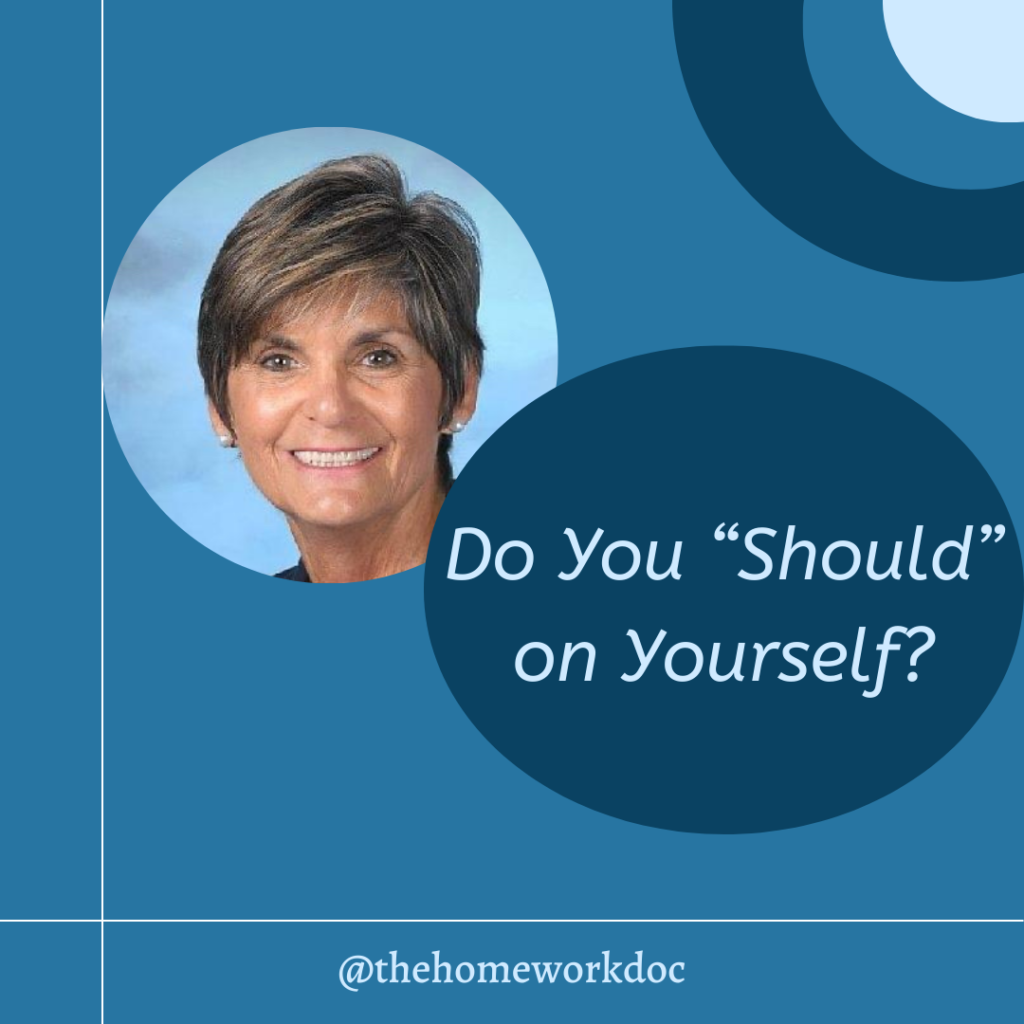“I should have done it differently.” Have you found yourself saying that?
“That parent should have made her children do the work.” Is this something you’ve thought of in the past?
How about, “The teacher should know my child did understand the concept.”
Everyday we “Should” ourselves and others. I’ve vowed today to stop doing it to myself and others. If I had known then what I know now, I would have done it differently. The problem is I didn’t know how things would turn out until they didn’t go the way I thought it would.
Instead of “Shoulding” on ourselves, we can celebrate the mistake as an opportunity to learn something new. “Shoulding” is a challenging word that indicates we need a new strategy since that last one didn’t work.
If children aren’t doing what we thought they should do, it might be because they lack the skills required.
Teachers would teach children differently if the children would share when they are confused. Too many times the student isn’t listening or gets lost and daydreams, then complains to the parents, but the children never shared what they didn’t understand. The “should” can be replaced by the teachers sharing they are not mind readers and can’t determine if students are confused and students can be trained how to ask questions to get the support they need.
Then we need to consider, does the parent also lack the skills we think they should know? If so, parent training in ways to support the classroom teacher and empower their children to get their needs met from the teacher regarding school work, instead of from them.
Jessie
I was consulting with a parent of a second grader, whose teachers wanted her to read with her daughter everyday. They wanted her to teach Jessie time management and how to manage her supplies. After a home visit, it was clear that the mother lacked those same skills and did not have the patience to read withJessier. Asking her to do the training was setting Jessie up for failure.
During an IEP meeting, I shared that the parent was not capable of teaching these skills and if we relied on her, Jessie would be doomed to the same fate as her mother. I asked, “Isn’t there someone at school, a sixth grader or another teacher, who could read with Jessie for 15 minutes after school?” The teacher volunteered. While the teacher worked on reading skills, I worked with her on time and clutter management.
Today,Jessie holds a Master’s degree thanks to the teacher who volunteered and changed her “Should” to “I will help her.” Jessie is gainfully employed. She made it through college by acquiring scholarship funding and was able to live on campus as a dorm advisor. Had she not gotten help in second grade because others were thinking her mother should teach her the skills she lacked, she would probably be doing the swing shift work like her mother.
